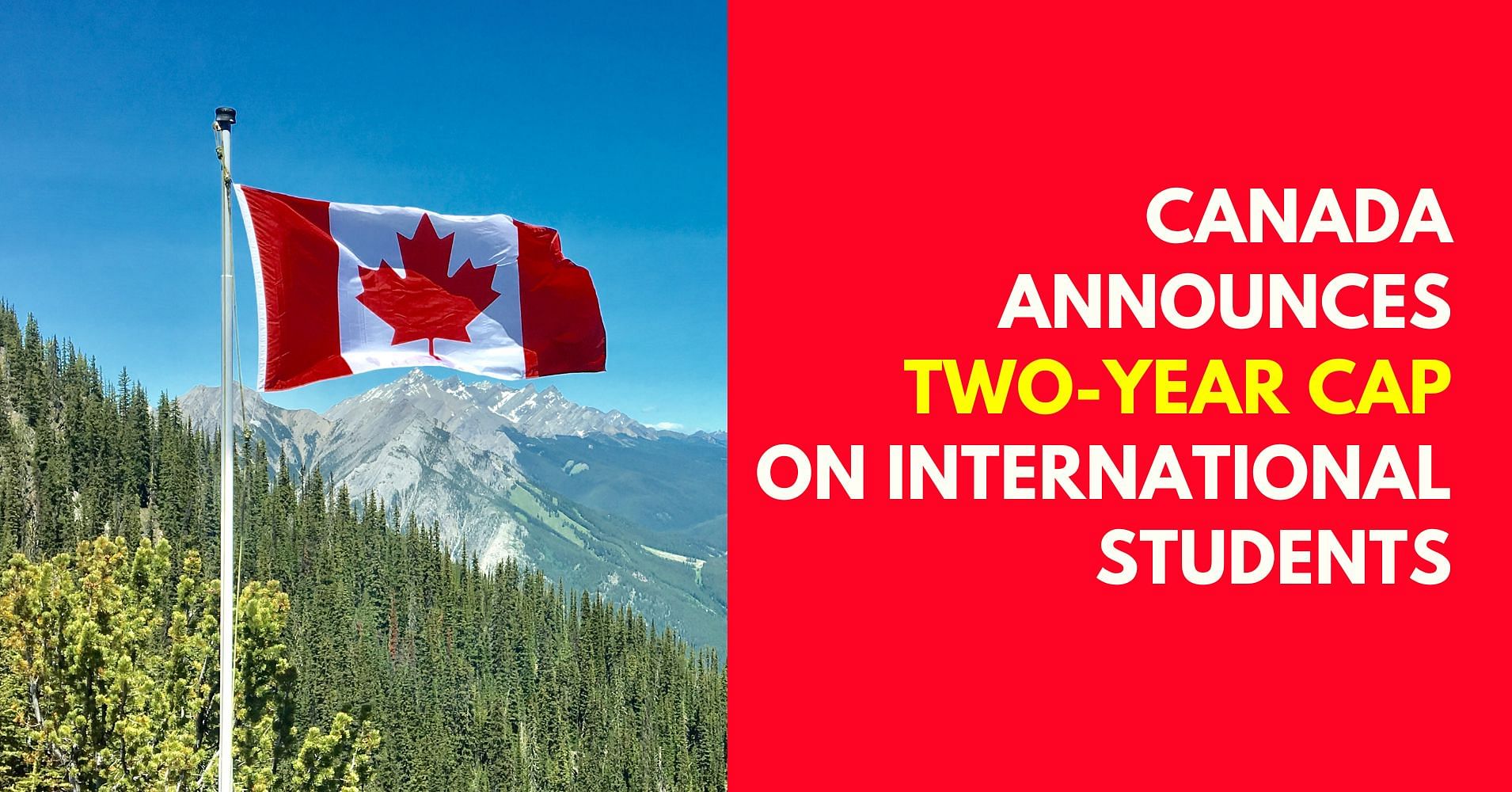
 Study Permit
Study Permit
Are you an aspiring international student planning to pursue your dreams in Canada? Recent updates in Canada immigration news have brought significant changes, particularly the introduction of a CAP on international students for the next two years. This blog post delves into the details of these changes, their impact, and what they mean for your educational journey in Canada.

Canada has long been a favored destination for international students, offering world-class education, multicultural environments, and promising post-graduation opportunities. However, the new CAP on international students Canada has announced could reshape the landscape. Let’s explore what these changes entail and how they might affect your plans.
If you’re considering studying in Toronto, understanding the implications of the cap on international students is crucial for a well-informed study permit application in Canada. Stay informed with the latest developments and navigate the evolving scenario for international students in Canada.
The CAP on international students in Canada is a policy designed to manage the number of international students admitted to Canadian educational institutions each year. This measure aims to ensure that the quality of education and the availability of resources remain high, benefiting both domestic and international students. However, CAP on international students also brings with it a series of cascading effects, particularly concerning work permits and visas for spouses or dependents of international students.
Read More: Caregiver Program Canada
The IRCC periodically reviews and adjusts the caps on international students based on various factors such as the current educational infrastructure, the needs of the Canadian labor market, and broader immigration trends. These cap Canada are part of the study permit application process, which involves several key steps:
Recent changes to the caps could be in response to the COVID-19 pandemic, where Canada saw fluctuations in international student numbers due to travel restrictions and online learning. As the situation normalizes, the IRCC might adjust caps to either encourage more international students in certain disciplines that support post-pandemic recovery or to manage the expected surge in applications.

Staying updated on Canada immigration news is crucial for aspiring students navigating the intricacies of the study permit application in Canada. For those eyeing Toronto, understanding how the cap on international students Canada affects the local international student community is paramount for a successful educational journey.
Toronto, a bustling hub for international students in Canada, is poised to feel the impact of the CAP on international students. The city’s diverse array of colleges and universities has traditionally attracted a large number of international students. With the CAP in place, institutions in Toronto may need to adjust their admission policies, and international students may find a more competitive landscape not only for admissions but also for part-time jobs and internships that are crucial to their Canadian experience.
However, with the CAP in place, institutions in Toronto may need to adapt their admission policies, potentially creating a more competitive environment not only for admissions but also for securing part-time jobs and internships—integral components of the quintessential Canadian experience for international students.
Staying abreast of Canada immigration news is essential for those navigating the complexities of the study permit application Canada, especially in the context of the evolving international student cap scenario.
Read More: Top 7 Benefits of Living in Canada
This policy will affect prospective international students across the globe, including those from Nigeria, Columbia, Ghana, India, and other countries, looking to study in Canada. It’s crucial for students and educational consultants to stay informed about these changes to navigate the application process effectively.

The CAP on international students Canada introduces a layer of complexity to the application process, emphasizing the importance for students and educational consultants to stay abreast of the latest Canada immigration news.
Navigating the nuances of the study permit application Canada becomes more crucial than ever in the context of this evolving scenario. Understanding how the cap on international students affects students from diverse nations, including those drawn to Toronto, sheds light on the global implications of this policy shift.
Read More: 10 Highest Paying Jobs in Canada
The CAP varies across provinces, reflecting the educational infrastructure and resources available in each region. Larger urban centers, such as Toronto, may feature unique CAPs on international students Canada compared to provinces hosting smaller educational institutions.
This approach ensures that every province can maintain the quality of education and student life. Staying informed about these regional intricacies is imperative for prospective international students in Canada and those assisting them in the study permit application in Canada, ensuring a comprehensive understanding of the diverse educational opportunities available throughout the country.
The new policy also introduces changes to Post-Graduation Work Permits (PGWPs), affecting international students’ ability to work in Canada after completing their studies. These changes aim to align work opportunities with the skills and sectors in demand within the Canadian economy.

Understanding these alterations becomes paramount for those considering a study permit application in Canada, especially for prospective students eyeing Toronto, a city known for its significant population of international students. Keeping abreast of the latest Canada immigration news is crucial to making informed decisions regarding education and post-graduate prospects in the country.
Read More: Ontario PNP Latest Draw
Master’s degree programs for international students have also seen adjustments, with specific CAPs and criteria ensuring that these programs remain accessible yet competitive, preparing students for the global job market. The Canadian government’s commitment to transparency is evident in the regular updates on Canada immigration news, providing clarity on changes to the study permit application Canada process. Toronto, a hub for international students Canada, continues to attract diverse talent.
The city’s vibrant atmosphere enhances the overall experience for Toronto international students. However, staying informed about the cap on international students Canada is crucial, ensuring a smooth transition for those pursuing a Master’s degree in this dynamic educational landscape.
On the one hand, fewer international students could mean less competition for resources, potentially enhancing your educational experience. On the other hand, it might signal tighter admission processes and increased competition for spots.
It’s crucial to note that not all provinces will experience the cap’s effects equally. Some, like Ontario, which has traditionally welcomed a large number of international students, might see a more significant impact compared to others with fewer international students. This variable can be a critical factor in deciding where to apply.
International students have been a substantial financial boon to Canadian institutions, contributing significantly to the economy through tuition and living expenses. With the cap in place, universities and colleges might re-evaluate their offerings and support services, potentially affecting the quality of education and campus life.
The cap does not alter the policies allowing international students to work while studying, which is a significant draw for many. However, changes to the Post-Graduation Work Permit Program (PGWP) mean that your career prospects post-study may be different now, depending on your field and level of study.
Is It Still Worth It?
Absolutely. Canada remains a top-tier destination for international education, known for its quality and inclusive policies. While the cap introduces new dynamics, it also ensures that students who do come will be entering a system focused on maintaining high standards and support.
Read More: Immigrate to Canada Without Job Offer
In light of the cap, here are some strategies to enhance your chances of studying in Canada:

Planning for the Next 2 Years
Looking ahead, the CAP on international students in Canada is expected to remain supportive, with policies evolving to enhance the international student experience. Prospective students should focus on improving their language proficiency, understanding Canadian academic and cultural norms, and staying informed about Canada immigration news and CAP updates.
SayHomeCanada Immigration is dedicated to supporting students through every step of their journey, from the initial study permit application in Canada to adapting to life in vibrant cities like Toronto. With expert guidance, international students can navigate the CAP confidently, making the most of the opportunities Canada has to offer.
Read More: Spousal Sponsorship in Canada
The CAP on international students in Canada marks a significant shift in the country’s approach to international education. While it aims to preserve the quality of education and life for all students, it also introduces new challenges for those aspiring to study and work in Canada. As these changes unfold, staying abreast of the latest Canada immigration news and seeking expert advice will be crucial for international students and their families.
Don’t let the new CAP on international students deter your Canadian dreams. Contact SayHomeCanada Immigration today for personalized advice and support tailored to your unique situation. Let us help you navigate these changes and pave the way for a successful educational journey in Canada.
Yes, the new CAP does not eliminate the opportunity for international students to work while studying. However, there are specific conditions and restrictions in place to ensure that employment does not interfere with academic commitments. Working part-time while studying is an excellent way to gain Canadian work experience and support yourself financially. For advice on balancing work and study and understanding the regulations, consult with SayHomeCanada Immigration. Our team can guide you through the work permit process and help you understand your rights and responsibilities as an international student worker in Canada.
Thank you for the response .
Let's Connect